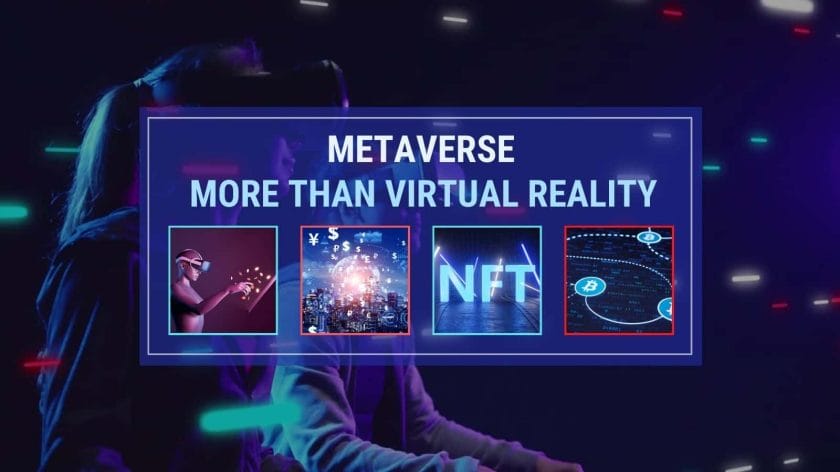The concept of the metaverse has gained significant attention in recent years, with many wondering just how big this virtual world could become. As technology continues to advance and more people embrace immersive experiences, experts are exploring the potential size and scope of the metaverse.
What is the Metaverse and Why is it Important?
As an AI expert, I am always fascinated by the latest technological advancements. The metaverse is one such development that has been making waves in the tech world. But what exactly is it? In simple terms, the metaverse is a fully immersive digital world where users can interact with each other and with virtual objects. It’s like a combination of virtual reality and social media.
The importance of the metaverse lies in its potential to revolutionize how we interact with each other and with technology. Imagine being able to attend a meeting or concert in a virtual space without ever leaving your home. Or exploring a new city or planet without having to physically travel there. The possibilities are endless.
Benefits of the Metaverse
- Increased accessibility: The metaverse can provide access to experiences and opportunities that may not be available in real life due to physical limitations or distance.
- New forms of entertainment: With the metaverse, we could see entirely new forms of entertainment emerge, such as interactive movies or games.
- Socialization: The metaverse allows for socialization on a global scale, bringing people together from all over the world.
Potential Drawbacks
- Addiction: As with any technology, there is a risk of addiction to the metaverse.
- Lack of physical interaction: While the metaverse offers new ways to connect with others, it cannot replace physical interactions completely.
- Data privacy concerns: There will be concerns around data privacy and security within this digital world.
How Does the Metaverse Differ from Virtual Reality or Augmented Reality?
When discussing the metaverse, it’s important to understand how it differs from other related technologies, such as virtual reality (VR) and augmented reality (AR). While all three involve digital environments, the key difference is in the level of immersion and interactivity.
Virtual reality is a completely immersive experience where users are transported to a fully digital world. They can interact with objects and other users within that world, but it’s limited to what has been programmed into the VR environment. Augmented reality, on the other hand, overlays digital information onto the real world through a device such as a smartphone or headset.
The metaverse is different because it’s not limited to a single experience or environment. It’s an entire digital universe where users can create their own experiences and interact with others on a global scale. It’s like combining VR and AR into one massive platform.
Potential Applications
- Virtual events: The metaverse could be used for virtual conferences, concerts, or other events that would normally require physical attendance.
- Education: The metaverse could provide new opportunities for education by creating interactive learning experiences.
- Retail: Retailers could use the metaverse to create virtual storefronts where customers can browse and purchase products without leaving their homes.
Who is Working on Building the Metaverse?
The concept of the metaverse has been around for decades, but it’s only recently that we’ve seen significant progress towards building it. Several tech companies are investing in this area:
Facebook has been one of the most vocal proponents of the metaverse. In fact, they have rebranded themselves as a “metaverse company” and have announced plans to invest billions of dollars into developing this technology.
Roblox
Roblox is a gaming platform that has been around since 2006. While it’s primarily used by children, it has the potential to be much more. The company has announced plans to create a metaverse-like experience within their platform.
Epic Games
Epic Games is the company behind the popular game Fortnite. They have already created a virtual concert experience within the game and are working on expanding that into a larger metaverse experience.
How Close are We to Achieving a Fully Realized Metaverse?
The development of the metaverse is still in its early stages, but there has been significant progress made in recent years. However, we’re still likely several years away from achieving a fully realized metaverse.
One of the biggest challenges is creating a seamless user experience across different platforms and technologies. Currently, there are many different VR and AR platforms available, but they don’t all work together seamlessly. In order for the metaverse to be successful, users need to be able to seamlessly move between different experiences without any hiccups.
Another challenge is creating enough content for users to engage with. The metaverse will only be successful if there are enough experiences and activities available to keep users engaged over time.
What Kind of Technology Would be Required to Create a Functioning Metaverse?
The technology required for the metaverse is complex and multifaceted. Some of the key components include:
Hardware
- Virtual reality headsets: These devices allow users to fully immerse themselves in digital environments.
- Haptic feedback devices: These devices provide tactile feedback to users, making the experience more immersive.
- Smartphones and other mobile devices: These devices are necessary for accessing the metaverse on-the-go.
Software
- Game engines: Game engines are used to create the virtual environments within the metaverse.
- Social media platforms: Social media platforms will be an important component of the metaverse, allowing users to connect with each other and share experiences.
- Artificial intelligence: AI will be used to create more realistic and interactive virtual environments.
How Would People Interact with Each Other in the Metaverse?
The interactions within the metaverse would be similar to those in real life. Users would be able to communicate with each other through voice chat or messaging, and they could engage in activities together such as playing games or attending events.
One of the key differences is that users would have much more control over their identities within the metaverse. They could choose how they appear to others, what information they share about themselves, and who they interact with. This could lead to new forms of socialization that aren’t possible in real life due to factors such as physical appearance or location.
Would There be any Limitations to What Can be Done in the Metaverse?
While the possibilities of the metaverse are endless, there will still be limitations on what can be done within this digital world. Some potential limitations include:
- Limited physical sensations: While haptic feedback devices can provide some degree of tactile sensation, it’s not yet possible to replicate all physical sensations within a digital environment.
- Data privacy concerns: As with any online platform, there will be concerns around data privacy and security within the metaverse.
- Technical limitations: The technology required to create a fully immersive metaverse experience is still being developed, and there may be technical limitations that prevent certain experiences from being possible.
Could the Metaverse Replace Physical Interactions and Experiences in Real Life?
While the metaverse has the potential to provide new forms of interaction and experiences, it’s unlikely that it will completely replace physical interactions. There are certain aspects of real life interactions that cannot be replicated within a digital environment, such as physical touch or smell.
However, the metaverse could supplement real life interactions by providing new opportunities for socialization and experiences that may not be possible in real life due to physical limitations or distance.
How Might Businesses and Industries Utilize the Metaverse for Their Own Purposes?
The metaverse has the potential to revolutionize how businesses and industries operate. Some potential applications include:
Retail
Retailers could use the metaverse to create virtual storefronts where customers can browse and purchase products without leaving their homes. This could provide new opportunities for retailers to reach customers who may not have access to physical stores.
Real estate
The metaverse could also be used by real estate companies to provide virtual tours of properties. This would allow potential buyers to get a better sense of a property without having to physically visit it.
Gaming
Gaming companies are already exploring how they can use the metaverse to create more immersive gaming experiences. This could lead to entirely new types of games that are only possible within this digital world.
Would There be any Ethical Concerns Surrounding the Creation and Use of the Metaverse?
As with any new technology, there will be ethical concerns surrounding the creation and use of the metaverse. Some potential concerns include:
- Addiction: There is a risk that users could become addicted to the metaverse, leading to negative impacts on their physical and mental health.
- Data privacy: There will be concerns around data privacy and security within the metaverse.
- Identity theft: Users could potentially have their identities stolen within the metaverse, leading to financial or reputational harm.
What Kind of Impact Could the Metaverse Have on Society as a Whole?
The impact of the metaverse on society as a whole is difficult to predict, but it has the potential to be significant. Some potential impacts include:
- New forms of entertainment: The metaverse could provide entirely new forms of entertainment that are not possible in real life.
- Increased accessibility: The metaverse could provide access to experiences and opportunities that may not be available in real life due to physical limitations or distance.
- Socialization: The metaverse allows for socialization on a global scale, bringing people together from all over the world.
Could Governments Regulate or Control Access to the Metaverse?
It’s possible that governments could regulate or control access to the metaverse in some way. For example, they may require users to verify their identity before accessing certain parts of the platform, or they may require companies operating within the metaverse to comply with certain regulations.
How Might Privacy be Addressed Within the Confines of a Digital World Like the Metaverse?
Data privacy will be a major concern within the metaverse, and it’s important that measures are put in place to protect users’ privacy. Some potential solutions include:
- Encryption: All data transmitted within the metaverse could be encrypted to prevent unauthorized access.
- User control: Users should have control over what information they share about themselves within the metaverse.
- Data minimization: Companies operating within the metaverse should only collect the minimum amount of data necessary for their operations.
Would There be any Legal Issues Surrounding Ownership or Intellectual Property Within the Metaverse?
There will likely be legal issues surrounding ownership and intellectual property within the metaverse. For example, who owns virtual real estate or objects created within this digital world? How can intellectual property rights be enforced when it comes to digital creations?
These are complex questions that will require new legal frameworks to address. It’s possible that we’ll see new types of laws and regulations specifically designed for this digital world.
How Big Could We Realistically Expect the Metaverse to Become, Both in Terms of User Base and Overall Scale?
The potential size of the metaverse is difficult to predict, but it could potentially become a massive platform with billions of users. However, this will depend on several factors:
- Adoption rate: The success of the metaverse will depend on how many people adopt it as a platform.
- Content creation: The more content that is created within the metaverse, the more attractive it will be to users.
- Technology advancements: Advancements in technology could enable even more immersive and interactive experiences within the metaverse.
In conclusion, the size of the metaverse is yet to be determined, but one thing is for sure – it’s going to be huge. With advancements in technology and the increasing demand for immersive experiences, the potential for growth is limitless. If you’re interested in exploring the possibilities of AI and how it can enhance your business, don’t hesitate to get in touch with us. We’d love to chat with you and show you what our services can do.

How much would metaverse be?
The cost of developing a Metaverse can range from $10,000 to $400,000 depending on various factors. In order to enter the virtual world, a VR headset is required, but smartphones, laptops, and PCs can also serve as a means of entry. This information was last updated on February 10, 2023.
Will the metaverse be a trillion?
The metaverse could be an industry worth trillions of dollars due to its unique solution to the problem of scarcity. This article will examine the vast economic potential of creating the metaverse.

Could the metaverse be worth $5 trillion by 2030?
The metaverse could have a huge impact and be worth $5 trillion by 2030. It is a major growth opportunity for various industries in the next decade, including consumer packaged goods, retail, financial services, technology, manufacturing, and healthcare.
Will metaverse overtake internet?
Many people think that the metaverse, as depicted in the movie Ready Player One, is a replacement for the internet, but this is not true. The metaverse is actually meant to enhance and expand upon the capabilities of the internet, and it can only be achieved with ultrafast internet speeds.
Will metaverse take over reality?
Although the metaverse can provide access to various work and consumption-related activities such as live events, digital art, and avatar skins, it cannot fully substitute the essential human need for in-person interaction and connection, particularly in a business context.
How long until we live in the metaverse?
Meta Platforms believes that the technology needed to create a fully functional metaverse does not currently exist, but predicts that it will be developed within the next 5 to 15 years. As a result, a complete metaverse may become available between 2025 and 2035.








